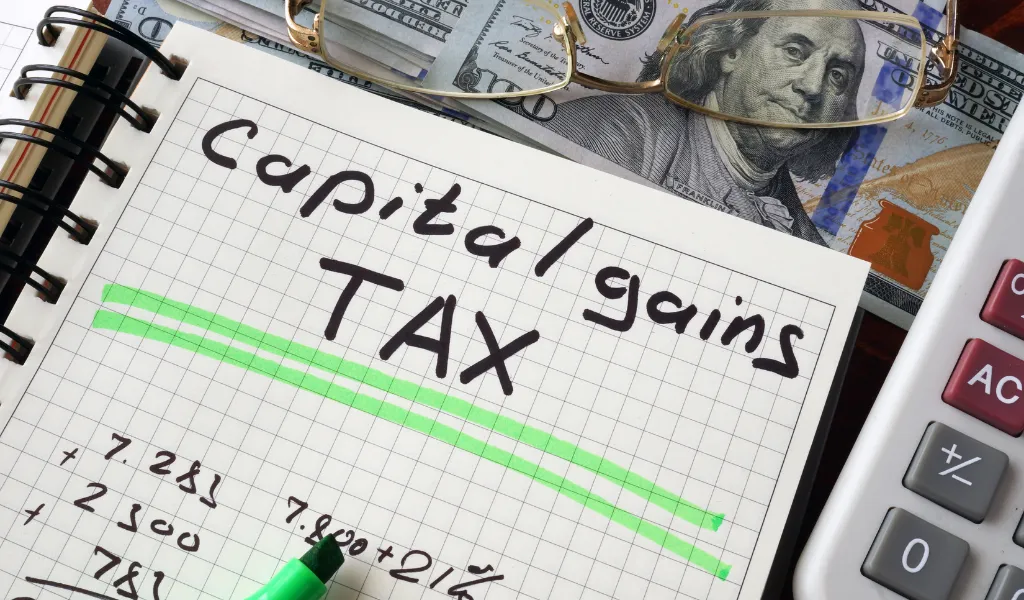It is crucial to be aware of your tax responsibilities and make sure you abide by the law when renting out your house on Airbnb in the UK. Although paying taxes on your Airbnb income is an unavoidable expense, there are tactical and legal strategies to reduce your tax burden. This guide will cover everything regarding Airbnb income. It will also cover ways to avoid paying tax on Airbnb.
First, let’s discuss the definition of a Furnished Holiday Let. Then, we can move on to the tax liabilities and ways to reduce them.
What is a Furnished Holiday Let (FHL)?
A property must meet the following criteria to qualify as a Furnished Holiday Let (FHL) in accordance with HMRC:
- Availability to rent the property should remain for at least 210 days annually.
- Out of the 210 days, for at least 105 days per year, the property should be rented out.
- The furniture in the property needs to be suitable for regular use, and the inhabitants need to be allowed to use it.
- The property should reside in the United Kingdom, or in the European Economic Area (EEA).
- Renting out to holidaymakers is necessary, not just to friends and family.
- The tenant must only occupy the property for a maximum of 31 days at a time, unless there are extraordinary or unforeseen circumstances.

What are the Tax Advantages of FHLs?
There are plenty of tax benefits of running an FHL. If your property is eligible to classify as an FHL, then you gain capital allowance for equipment, furniture, and fittings. These allowances include plants and machinery. As a result, you can reduce your income tax liability by a significant amount. You are free to spend that money according to your wants.
Furthermore, you are classified as a business for tax purposes. What does this mean? Well, it means you have access to allowable expenses. Through these, you can offset the costs of utility bills, cleaning bills, and repair bills. Depending on the renter, you may incur heavy expenses.
Unlike buy-to-let properties, the rental profits you generate from FHLs are ‘Relevant Earnings’. This means that you can make pension contributions with tax advantages. For this, your future self will greatly thank you. Not only this, but National Insurance Contributions do not apply to FHLs. Then, can you avoid paying tax on Airbnb?
If you and your spouse jointly own the property, you can decide to split the profit in a tax-efficient manner. In the long run, this will save you money.
Also, an FHL is eligible for mortgage interest relief. You can reduce your income tax liability by offsetting your mortgage interest against the profit you made.
Please note that if you let out the entire property that you live in, you need a consent to let. Maybe you are staying elsewhere in this case. If you do not get a consent to let, you can change your mortgage to a buy-to-let. Of course, this comes with its own advantages and disadvantages.
What is the Difference Between a Buy-to-Let Property Owner and an Airbnb Host?
You can rent out your home to short-term guests during peak seasons or full time as an Airbnb host. This differs from a buy-to-let landlord as they rent out for long-term purposes. They rent out to individuals and families for a specific period, which is stated in a tenancy agreement. Whereas Airbnb involves listing the property on a website to attract a variety of guests during the year. So, is it possible to avoid paying tax on Airbnb?
Another difference is the amount of control. As an Airbnb host, you only have limited control over who can stay on your property. However, you can still set some rules such as no smoking or partying. While landlords have more control. They can target certain types of tenants. For example, students, families, or young professionals.
How Much Tax Do You Owe on Your Airbnb?
When it comes to paying tax on your Airbnb, you must understand the difference between renting out a room in an investment property and renting out a room in your primary residence. If you rent out a furnished room in your house for your Airbnb business, then you benefit from tax-free allowances. You also have tax advantages in this case.
Whereas if you are running an Airbnb business that involves an investment property, then you get the tax treatment of a business owner. The same applies if you do not always live on the property.
How to Avoid Paying Tax on Airbnb UK
Following are the ways you can avoid paying tax on your Airbnb income or minimise your tax liability:
Declare your Income Correctly
If you want to avoid any tax issues, then the most important step is to declare your Airbnb correctly. It is compulsory for you to report any income you generate from your rental property to HMRC. To facilitate the reporting process, you must maintain accurate records of your rental income along with your expenses.
Utilise the Rent-a-Room Scheme
As someone who is just starting their Airbnb business, you may qualify for the Rent-a-Room scheme. If your rental income is below the threshold, which is £7,500, you do not have to worry about paying tax. Through this scheme, you have the advantage of earning up to £7,500 free of tax yearly. This applies to those who rent out a furnished room in their own house. Please note that the threshold does not apply to the profit you make after deducting expenses. Instead, it is applicable to your gross rental income.
Maintain Records of Deductible Expenses
As an Airbnb host, you have the advantage of deducting specific expenses from your rental income. As a result, you reduce your overall tax liability. You can deduct expenses such as council tax, maintenance and repair costs, mortgage interest, cleaning fees, and utility bills. Nevertheless, you need to keep records in detail. You should only claim expenses that are legitimate and relate to your rental activity directly. There are more ways to avoid paying tax on Airbnb.
Explore Limited Company Structures
Suppose you are generating significant income from your Airbnb rentals. In this case, you can consider setting up a limited company to gain benefits. A limited company provides you with the advantage of lower tax rates. Furthermore, it offers additional tax planning opportunities. Nevertheless, you must consider the costs and complications that come with running a limited company. You should weigh them against the tax advantages before you go down this route. To find out if this option is right for you, you should consult an accountant specialised in property rental. Or you can reach out to a tax advisor.
Get Expert Advice
Undoubtedly, tax laws and regulations are complex. Moreover, they are subject to change. You must get expert advice from a qualified accountant or tax advisor. This will ensure your compliance with the tax requirements. Furthermore, you can take advantage of any tax reliefs. Professionals can offer tailored guidance according to your personal situation. They will help you navigate the intricate tax world efficiently.

Can You Claim Capital Allowances on Your Airbnb Property?
On specific items in your Airbnb property, you can qualify for claiming capital allowances. Certain items include equipment and furniture you use for rental activity. Through capital allowances, you can reduce your tax liability by deducting the expense of these items from your taxable profits. You should reach out to a tax advisor. They will assist you in determining the value and eligibility of capital allowances for your personal circumstances. It is important to understand how to avoid paying tax on Airbnb UK.
Do You Need to Pay Tax When Renting Out a Room in Your Home?
Yes, you may need to pay tax when you rent out a room in your own house. If you rent out a furnished room and the rental income you receive is below £7,500 annually, then you do not need to pay tax. This is because you can qualify for the Rent-a-Room scheme. However, if your income goes over this threshold, you need to declare your rental income and pay taxes.
What Happens If You Report Your Airbnb Income Tax Incorrectly?
Whether you report incorrect tax intentionally or unintentionally, it can lead to penalties and even legal consequences. HMRC will find out about it through their robust mechanisms. Therefore, you must remain careful while reporting your Airbnb income. To avoid unnecessary penalties and liabilities, accurate and timely reporting is essential. Therefore, you should know how to avoid paying tax on Airbnb.
Is it Possible to Amend Your Tax Return if There Are Mistakes in Reporting your Airbnb Income?
You can make the necessary amendments in case you make mistakes or omissions in your tax return. It is crucial to rectify any mistakes immediately when reporting your Airbnb income. This will ensure you are complying with the regulations. As a result, you will avoid potential penalties. Remember that you should contact a tax professional. They will navigate you through the complex process and make sure there are no mistakes in reporting your Airbnb income.
What are the Tax Planning Strategies for Airbnb rentals?
Depending on your financial goals and person circumstances, tax planning strategies for Airbnb rentals vary. Nevertheless, there are some common strategies. For example, exploring limited company structures, optimising deductible expenses, and considering the Rent-a-Room scheme. You should reach out to a tax advisor. They will assist you in developing a tailored tax plan for your Airbnb rental business.
Is it Necessary to Register as Self-employed if You Rent Out Your Property on Airbnb?
You may have to register as self-employed with HMRC if you rent out your property on Airbnb as a business activity. That is, if your rental income goes beyond specific thresholds. Through this, you can gain certain benefits and deductions and fulfil your tax obligations. To avoid any possible penalties and non-compliance issues, you must clarify your obligations and legal status to HMRC. Thus, it is important to know the ways to avoid paying tax on Airbnb.
Please note that tax laws and regulations differ according to your location and personal circumstances. It is best to seek advice from a qualified accountant or tax professional. This will ensure you comply with the tax requirements. Also, you can make informed decisions.
Conclusion
To conclude, as an Airbnb host, you may need to report your income. It is all dependent upon your circumstances and the amount of income you earn per year. If it crosses the specific threshold, then you must report it and pay tax. There is no need to stress, as you can reduce your tax liability with various methods. Furthermore, there are plenty of advantages to running an Airbnb business in the UK. It is ideal to reach out for expert advice before deciding to go down this road.








